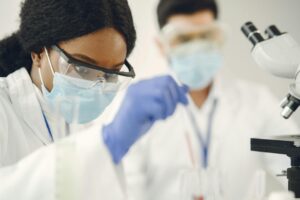Chemical compounds are present in almost every aspect of our daily lives, from the food we eat to the clothes we wear. Therefore, it is crucial that we analyze these compounds in order to ensure their safety for human consumption and use. In this article, we will explore the importance of analyzing chemical compounds in society and the role that techniques such as gas chromatography (GC) play in this process. Gas chromatography (GC) can be used in many industries including: pharmaceuticals, food and beverage, environmental, petrochemical, forensic science, and more. It is a versatile technique that can be used to analyze a wide range of compounds in a variety of samples.
To ensure the safety of the society
One of the primary reasons for analyzing chemical compounds is to ensure the safety of consumer products. Food and beverage industries, for example, use GC to analyze ingredients and detect any contaminants that may be present. This helps to ensure that the products we consume are safe for consumption and free from harmful toxins. Similarly, the pharmaceutical industry uses GC to analyze drugs and ensure their purity and potency.
In addition to ensuring the safety of consumer products, analyzing chemical compounds is also important for protecting the environment. GC is commonly used in environmental testing to detect pollutants and track the movement of chemicals in soil, water, and air. This information is crucial for identifying sources of pollution and developing strategies to clean up and prevent further contamination. Another important application of analyzing chemical compounds is in forensic science. GC is often used in criminal investigations to analyze fingerprints, blood samples, and other evidence to identify suspects and solve crimes. In this field, GC plays a crucial role in providing accurate and reliable results that can be used in court.

In conclusion, analyzing chemical compounds is essential for ensuring the safety of consumer products, protecting the environment, and solving crimes. Techniques such as GC play a vital role in this process by providing accurate and reliable results. The importance of GC and chemical analysis will only continue to increase as our society become more dependent on chemical products. As a result, it is important that we invest in the development of advanced analytical techniques to ensure the safety and well-being of society.
The need for GC in research and development studies
Another key aspect of analyzing chemical compounds is in the field of research and development. Scientists and engineers rely on GC and other analytical techniques to identify new compounds, understand their properties, and develop new products and technologies. For example, GC is used in the development of new drugs and medical treatments, as well as in the development of new materials and chemicals for industrial use. Furthermore, analyzing chemical compounds is also important for identifying and managing potential health risks. For example, workplace health and safety professionals use GC to detect and measure the levels of toxic chemicals in the air, in order to protect workers from exposure. Similarly, GC is used to monitor the quality of indoor air and identify potential sources of indoor air pollution.
In addition to its applications in industry and research, GC is also used in the field of education. GC is commonly used in teaching labs, allowing students to gain hands-on experience with the technique, and understand the principles of separation and detection. This helps to prepare the next generation of scientists, engineers, and technicians with the knowledge and skills needed to analyze chemical compounds in a variety of fields.
Examples of a few industries where GC is commonly used include:
- Biotechnology: GC is used to analyze biomolecules such as amino acids, sugars, and lipids.
- Agriculture: GC is used to analyze pesticides, herbicides, and other chemicals used in farming.
- Cosmetics and personal care: GC is used to analyze fragrances, preservatives, and other ingredients in cosmetics and personal care products.
- Energy: GC is used to analyze natural gas, crude oil, and other hydrocarbons.
- Industrial manufacturing: GC is used to analyze process streams, raw materials, and finished products in various industries such as chemical, plastic, and rubber.
Overall, GC is a highly valuable tool for identifying, quantifying and separating a wide variety of compounds in a diverse range of industries.
In summary, the ability to analyze chemical compounds is critical to the safety and well-being of society. GC is a versatile and powerful technique that is used in a wide variety of industries and applications, including food and beverage, pharmaceuticals, environmental science, forensic science, research and development, and many more. The continued development and advancement of GC and other analytical techniques will be essential for addressing the challenges of the 21st century and beyond.




